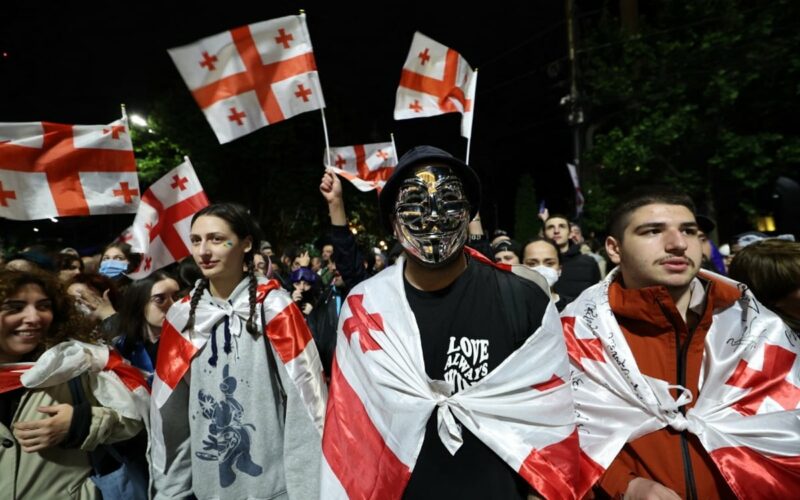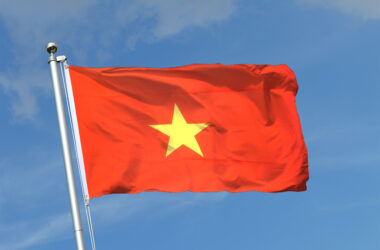Thousands of Georgians converged in Tbilisi for a fresh wave of protests against a proposed bill reminiscent of Russia’s “foreign agents” law, defying government warnings and reaffirming their commitment to European integration.
The demonstrations, some of the largest since the country gained independence from the Soviet Union in 1991, commenced late Sunday evening, with demonstrators vowing to maintain a presence overnight to impede lawmakers’ access to the parliamentary building ahead of the bill’s third reading on Monday.
Prime Minister Irakli Kobakhidze reiterated the government’s determination to pass the legislation this week, despite threats of prosecution against protesters. The contentious bill mandates organizations receiving over 20 percent of their funding from abroad to register as agents of foreign influence or face substantial fines.
Against a backdrop of EU and Georgian flags, protesters flooded Tbilisi’s main Rustaveli Avenue, even as President Salome Zurabishvili cautioned against potential provocations following reports of activist harassment and police deployment of water cannon and tear gas in previous demonstrations.
Authorities issued warnings of potential arrests for those attempting to obstruct parliamentary proceedings, yet demonstrators remained resolute in their opposition to the bill, which they fear could jeopardize Georgia’s aspirations for EU membership and draw parallels to Russia’s legislation.
The ruling Georgia Dream party’s attempt to introduce the law last year was met with overwhelming public opposition, prompting its withdrawal. However, party founder Bidzina Ivanishvili’s subsequent vilification of NGOs as “enemies within” and accusations of foreign collusion reignited the controversy.
Revived in April with minor modifications, the bill now requires NGOs, media entities, and journalists to register as entities “pursuing the interests of a foreign power,” prompting accusations of Georgia’s drift toward Moscow’s influence.
Georgia’s previous pro-Western stance was reaffirmed with its EU candidate status granted in December, underscoring the significance of this legislative move and possible change in Georgia – EU relations.








